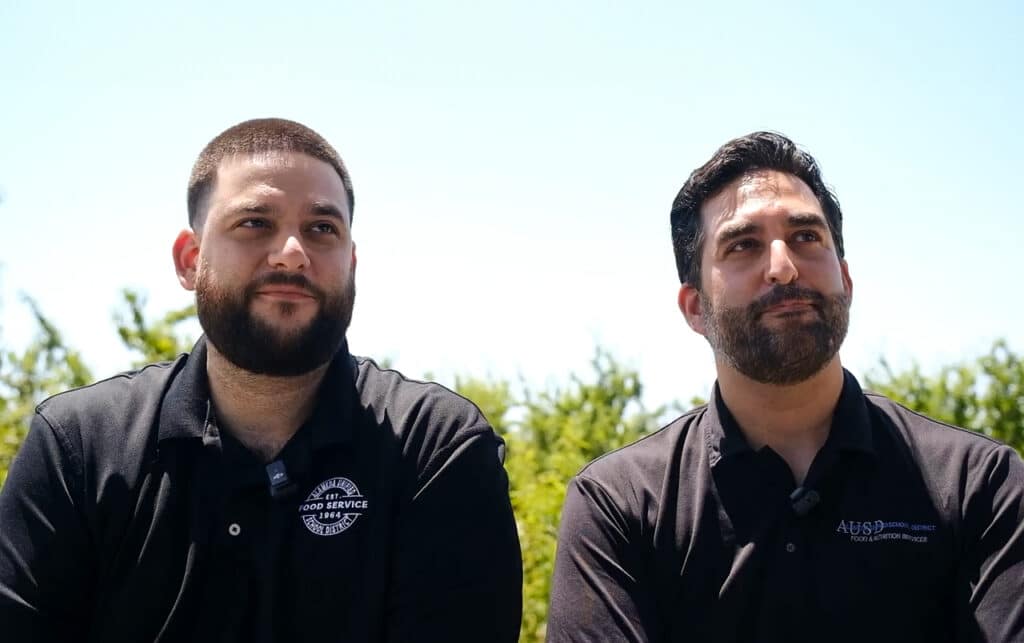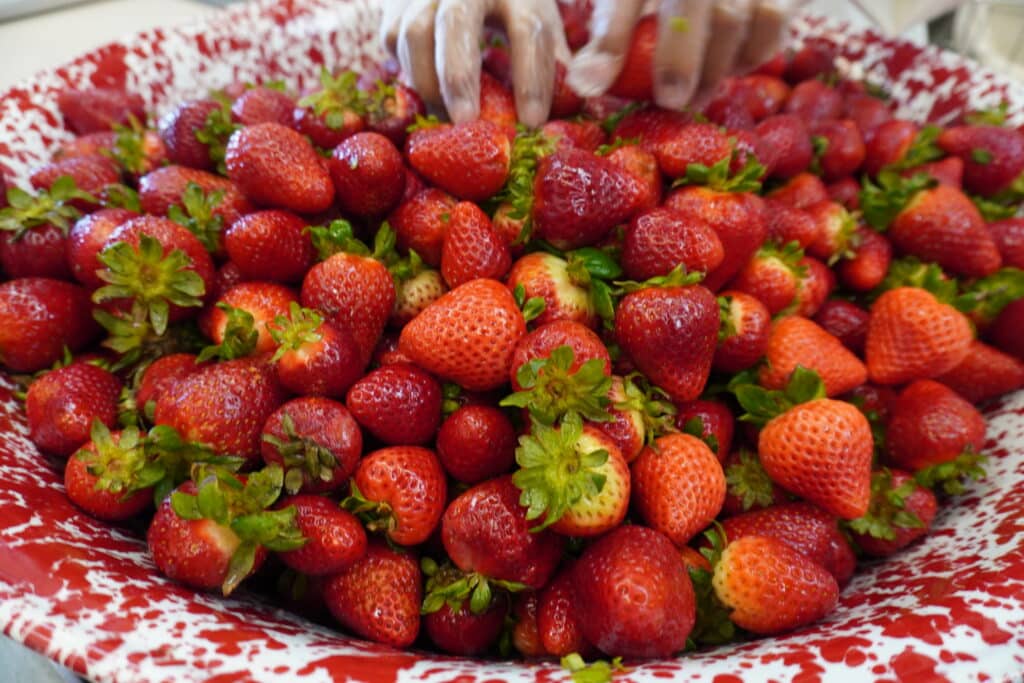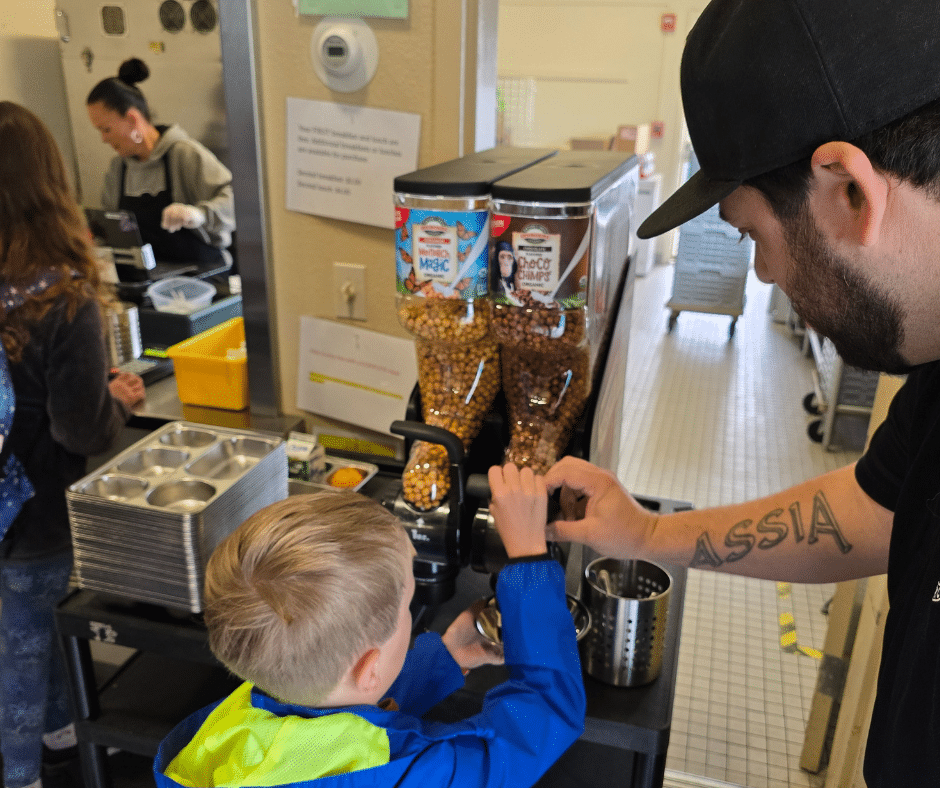Organic School Meals Now a Reality at Alameda Unified School District!
Have you ever wondered what kind of food our kids are eating every day at school?
Too often, it’s highly processed, pre-made meals that lack the nutrition growing minds and bodies need.
Now imagine a different world—one where every child has access to fresh, organic meals, where nutritious food is the norm, not the exception. A world where our school cafeterias don’t just serve food, but also teach healthy habits, spark curiosity, and empower students to choose meals that nourish them from the inside out.
That world is already taking shape at Alameda Unified.

It all started with a single email from Conscious Kitchen—a message that sparked curiosity and changes within Alameda Unified School District (AUSD). For brothers James and Alex Assia, now serving as Food Service Director and Operations Manager, that email planted a seed of curiosity that quickly grew into a district-wide movement. With nearly two decades of experience—working their way up from warehouse drivers to leadership roles—the Assia brothers are now leading a transformation in how and what our children eat at school. But their mission goes beyond the plate: they’re bringing values like sustainability, equity, and community into every corner of the cafeteria.
“Bringing organic food into our program is important to us for many reasons,” shared Alex Assia. “Most importantly, we want to introduce children to healthy, sustainable foods that not only taste better but are better for their health and the planet. By exposing students to organic options at a young age, we hope to help shape lifelong habits—so that choosing and valuing organic food becomes second nature, passed on through future generations.”
“We also believe strongly in supporting local organic farmers,” Alex continued. “They are the backbone of our food system, and we’re committed to doing our part to help sustain their essential work.”
Started with Strawberries . . .
After speaking with Albany Unified, a district transitioning to 100% organic produce, Alex and James got the guidance and confidence needed to pull conventional strawberries from the menu and begin sourcing Mimi’s Organic Strawberries.
“The kids loved the organic strawberries –– they keep asking for more!”

This year, Alameda Unified is proudly serving organic apples, mandarins, baby carrots, lettuce spring mix, and juicy strawberries reflecting a powerful shift toward real ingredients, local sourcing, and meals you can feel good about.
Since then, they’ve continued making admirable strides to reduce waste and improve food quality across the district. Alameda Unified is preparing to transition away from conventional milk cartons to bulk milk dispensers—an effort that will significantly cut down on dairy waste and single-use packaging. While currently awaiting news on a grant to help support this shift, the district has already lined up a plan with Hubert Restaurant Supply for dispenser procurement and established a purchase order with Veritable Vegetable to source Straus Family Creamery organic milk in bulk.
They’ve also swapped out ultra-processed breakfast options for organic cereals made with clean, simple, and easy-to-read ingredients—served in dispensers that will eliminate over 144,000 single-use cups each year. Taking their sustainability efforts even further, the district has transitioned four schools to reusable trays and metal utensils, becoming the first in the county to pilot this forward-thinking initiative.

“We’re currently working closely with our fiscal department to evaluate the timeline and feasibility of transitioning to 100% organic,” said Alex Assia. “I’m happy to share that we’re on track to serve at least 50% organic produce starting this fall, with the goal of reaching 100% organic by the end of the year.”
Advice for Other School Districts: “Start Small. Just Start.”
For districts wondering if they can make the leap, James and Alex have a simple message:
“It’s not as hard as it looks. Don’t be afraid to reach out-—to Conscious Kitchen, to districts who’ve done it before. Everyone is willing to and often want to help.”
Alameda Unified is showing that with the right support, change is not only possible—it’s already happening.